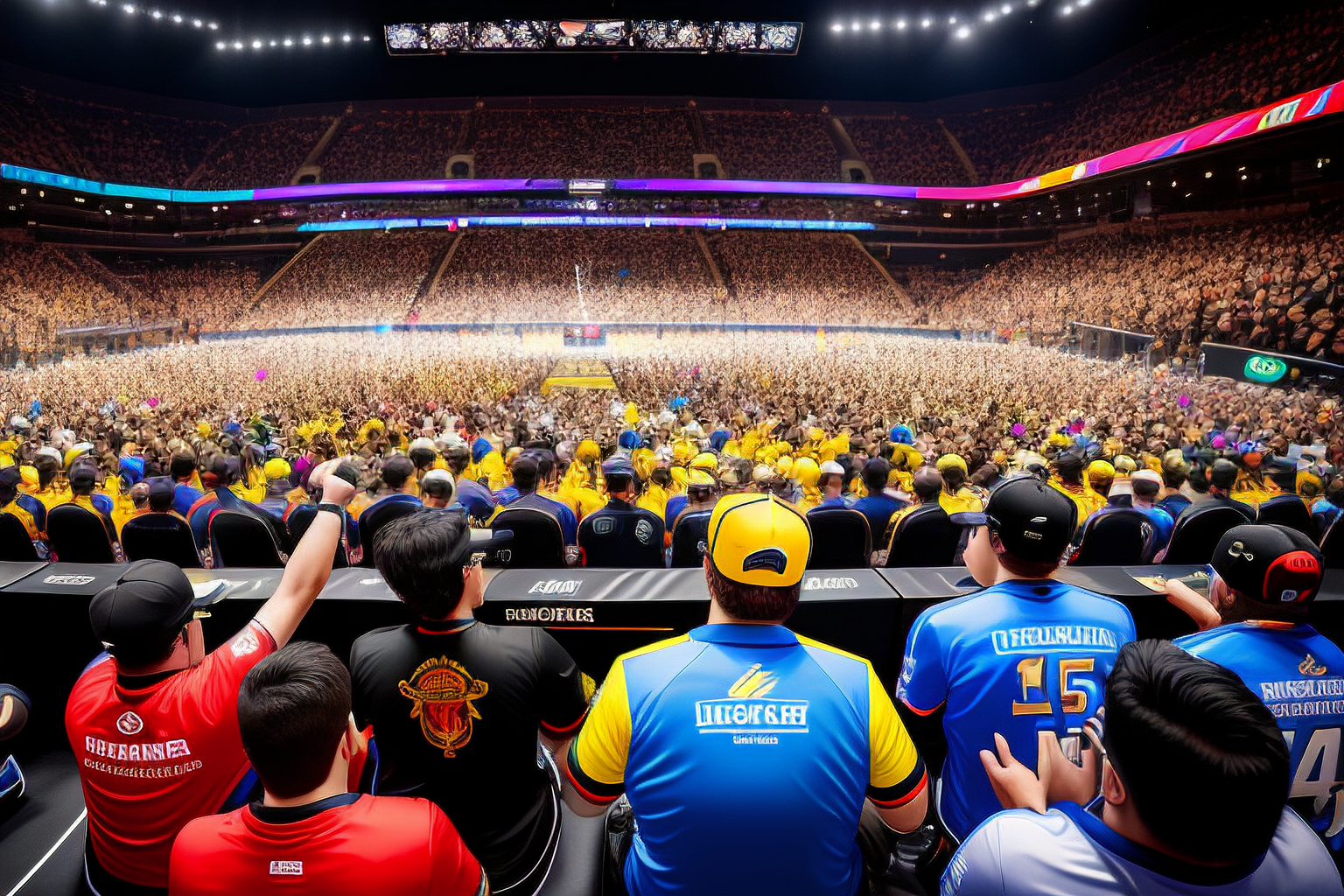How to Secure Your Browser Game Account
Ever felt that sinking feeling when you realize someone else might be playing your browser game account? It’s like walking into your living room and finding a stranger on your couch—unsettling, right? Securing your browser game account isn’t just about protecting your progress; it’s about safeguarding your personal info and the time you’ve invested. Think of your account as a treasure chest. Without the right locks, anyone can waltz in and grab what you’ve earned. But here’s the good news: with a few smart moves, you can keep those pesky intruders out and enjoy your game worry-free.
First off, let’s talk about passwords. They’re your account’s first line of defense. Using simple or repeated passwords is like leaving your front door wide open with a welcome mat for hackers. Instead, opt for strong, unique passwords. Mix letters, numbers, and symbols — something only you could remember but hard for others to guess. And no, “password123” or your pet’s name won’t cut it. If you’ve ever reused a password across sites, now’s the time to change that habit.
Next up, there’s two-factor authentication, or 2FA. Ever heard of it? It’s like having a second lock on your door that only you can open. Even if someone gets your password, they still need that extra code—usually sent to your phone—to get in. It’s a small step that makes a massive difference. Many browser games offer this feature, so don’t skip it. It’s a simple way to add a powerful shield around your account.
Now, let’s get real about phishing and scams. They’re sneaky traps set by bad actors trying to steal your login details. You might get a message pretending to be from the game’s support team or a link promising free in-game goodies. Sounds tempting, right? But here’s the catch: if it feels off, it probably is. Always double-check URLs, never share your password, and avoid clicking suspicious links. Remember, if it’s too good to be true, it usually is.
Protecting your browser game account isn’t rocket science, but it does take a bit of attention. Treat your account like your own personal fortress. Lock it up tight with strong passwords, add that extra 2FA barrier, and keep your eyes peeled for phishing attempts. Your game progress—and peace of mind—will thank you.
Use Strong and Unique Passwords
Let’s be honest—passwords are the gatekeepers of your online world, especially when it comes to your browser game accounts. Imagine leaving your front door unlocked. Sounds risky, right? The same goes for using weak or repeated passwords. If your password is something simple like “123456” or your pet’s name, you’re basically handing over your account on a silver platter to anyone who wants it.
But here’s the catch: creating strong, unique passwords doesn’t have to be a headache. Think of a password as a secret recipe. The more ingredients you add, the harder it is for someone to replicate. A good password mixes uppercase and lowercase letters, numbers, and special characters. For example, instead of “gamer123,” try something like “G4m3r!9xZ.” It looks messy, but that’s exactly the point—it’s unpredictable.
Now, I know what you’re thinking: “How am I supposed to remember all those crazy passwords?” Well, you don’t have to rely on memory alone. Password managers are like your personal safe, storing all your complex passwords in one secure place. This way, you only need to remember one master password, and the manager does the rest.
One more thing—never reuse passwords across different sites. It’s tempting, but if one site gets hacked, all your accounts become vulnerable. Here’s a quick breakdown of why unique passwords matter:
- Limits damage: A breach on one site won’t affect others.
- Increases security: Each account has its own strong defense.
- Reduces stress: You’re not scrambling to change everything after a leak.
Think of your passwords as the locks on your treasure chest. The stronger and more unique they are, the better your loot stays safe. Don’t let a lazy password be the weak link that ruins your gaming adventure.
Enable Two-Factor Authentication (2FA)
Ever felt like your password alone just isn’t enough? You’re not alone. That’s where Two-Factor Authentication (2FA) steps in, acting like a double lock on your browser game account. It’s not just about entering your password anymore; 2FA demands a second proof that you’re really you. This extra step might seem like a tiny hassle, but trust me, it’s a small price to pay for peace of mind.
Think of 2FA as a secret handshake. Even if someone sneaks your password, they still need that second key — maybe a code sent to your phone or a fingerprint scan. Without it, they’re stuck outside, no matter how clever they are. It’s like putting an invisible shield around your account, making it way tougher for hackers to break in.
Setting up 2FA is pretty straightforward. Most browser games offer options like:
- Text message codes sent to your phone
- Authentication apps generating time-sensitive codes
- Biometric verification, like fingerprints or facial recognition
Each method adds a unique layer of security. I once ignored 2FA because it felt like extra work. Big mistake. After a scary hacking attempt on a different account, I enabled it everywhere. Since then, I’ve slept better knowing my gaming progress isn’t vulnerable.
Some might wonder, “Is it really necessary?” Absolutely. Passwords can be stolen, guessed, or leaked. 2FA is that backup plan that catches what passwords miss. It’s like having a buddy watch your back while you’re away from the game.
So, next time you log in, take a moment to enable 2FA. It’s a simple step that packs a punch in keeping your account safe. Don’t just rely on a password; give your browser game account the extra armor it deserves.
Be Wary of Phishing and Scams
Ever received a suspicious email or message claiming to be from your favorite browser game? It might look official, but beware — it could be a phishing attempt designed to steal your login details. Phishing is like a clever trap set by scammers pretending to be someone you trust. They use fake websites, emails, or messages to trick you into handing over your username and password. Once they have that, your account is as good as gone.
Here’s the thing: these scams often look super convincing. They might use the game’s logo, mimic official language, or even create fake links that look real at first glance. But the moment you click or enter your info, you’re handing over the keys to your digital kingdom. So, how do you spot these traps before it’s too late? Start by checking the sender’s email address carefully. Is it from the official domain, or does it have weird characters or misspellings? Also, be cautious of urgent messages demanding immediate action — scammers love to rush you into mistakes.
Another red flag is links that don’t match what they say. Hover over any link before clicking. If it looks fishy or doesn’t lead to the official website, don’t touch it. When in doubt, go directly to the game’s official site by typing the URL yourself. Never log in through a link sent in an email or chat.
Remember, no legitimate game company will ever ask for your password via email or private message. If someone does, it’s a scam. If you suspect you’ve encountered phishing, change your password immediately and enable extra security measures like two-factor authentication.
In short, staying alert and skeptical is your best defense against phishing and scams. Think of your account like a treasure chest — don’t just hand out the key to anyone knocking at the door. Stay sharp, stay safe, and keep your gaming adventures worry-free.
Frequently Asked Questions
- Why is it important to use a strong and unique password for my browser game account?
Think of your password as the key to your gaming kingdom. If it’s weak or reused across multiple sites, hackers can easily break in and steal your progress or personal info. A strong, unique password acts like a fortress, making it much harder for cybercriminals to crack your defenses.
- How does two-factor authentication (2FA) enhance the security of my account?
2FA is like having a double lock on your door. Even if someone somehow gets your password, they’ll still need a second piece of verification—usually a code sent to your phone—to get in. This extra step drastically reduces the chances of unauthorized access.
- What are some common signs of phishing attempts targeting gamers?
Phishing often disguises itself as official messages asking for your login details or personal info. Watch out for suspicious emails, urgent warnings, or links that don’t look quite right. If something feels off, it probably is—never click or share your credentials without verifying the source.
- Can using public Wi-Fi affect the security of my browser game account?
Absolutely! Public Wi-Fi is like an open invitation for hackers to snoop on your data. When you log in to your game over unsecured networks, your information can be intercepted. To stay safe, use a VPN or avoid logging in from public hotspots whenever possible.
- What should I do if I suspect my browser game account has been compromised?
Don’t panic, but act fast! Immediately change your password to something strong and unique, enable 2FA if you haven’t already, and check your account activity for any suspicious actions. Contact the game’s support team to report the breach and seek further assistance.
- Are password managers helpful for securing my gaming accounts?
Yes! Password managers are like your personal security vault—they generate, store, and autofill complex passwords so you don’t have to remember them all. This means you can have unique, strong passwords for every game without the hassle of memorization.


